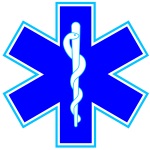Extremity Injuries: Difference between revisions
From Protocopedia
No edit summary |
|||
| Line 12: | Line 12: | ||
* If distal pulses are present and neurological function intact, immobilize apparent fractures in present position, (when possible). | * If distal pulses are present and neurological function intact, immobilize apparent fractures in present position, (when possible). | ||
* If distal pulses are diminished or absent, immobilize apparent closed fracture(s) in neutral anatomic position. Attempt to reduce severely angulated fractures with inline traction, except when a joint is involved. Note pulses distal to fracture site. Apply appropriate splinting and dressings. | * If distal pulses are diminished or absent, immobilize apparent closed fracture(s) in neutral anatomic position. Attempt to reduce severely angulated fractures with inline traction, except when a joint is involved. Note pulses distal to fracture site. Apply appropriate splinting and dressings. | ||
* If open, (compound), fracture | * If open, (compound), fracture: | ||
**cover with sterile dressings and immobilize in present position. Apply appropriate splinting and dressings. | |||
**[[ANCEF]] 2 gm IV/IO for adults or 50 mg/kg IV/IO up to 2gm for pediatrics | |||
'''DO NOT MANIPULATE OR REDUCE OPEN FRACTURES.''' | '''DO NOT MANIPULATE OR REDUCE OPEN FRACTURES.''' | ||
Revision as of 16:35, 22 January 2024
Section 6 - TRAUMA
6.06 EXTREMITY INJURIES
INITIAL TRAUMA CARE, (2.02)
SUSPECTED FRACTURE:
- Splint suspected fracture sites in most appropriate fashion:
- Fractures may be immobilized with padded board splints, ladder splints or air splints.
- Femur fractures may be immobilized with a traction splint or inflated MAST.
- Place cold pack on suspected fracture sites.
- If distal pulses are present and neurological function intact, immobilize apparent fractures in present position, (when possible).
- If distal pulses are diminished or absent, immobilize apparent closed fracture(s) in neutral anatomic position. Attempt to reduce severely angulated fractures with inline traction, except when a joint is involved. Note pulses distal to fracture site. Apply appropriate splinting and dressings.
- If open, (compound), fracture:
- cover with sterile dressings and immobilize in present position. Apply appropriate splinting and dressings.
- ANCEF 2 gm IV/IO for adults or 50 mg/kg IV/IO up to 2gm for pediatrics
DO NOT MANIPULATE OR REDUCE OPEN FRACTURES.
- Always assess distal neurovascular status before and after application of splint.
- Refer to ANALGESIA /SEDATION PRACTICE PARAMETERS (2.04).
DIFFICULT TO CONTROL BLEED OR TRAUMATIC AMPUTATION:
- If unable to easily control bleeding, consider the following procedures:
- Hemostatic dressing
- Combat Action Tourniquet if extremity
- iTClamp – not usable on trunk of body
- For amputations:
- Splint in line with associated extremity.
- If amputation incomplete, attempt to stabilize with bulky pressure dressing.
- Cleanse amputated part with sterile saline. Wrap in a sterile saline soaked dressing. Place in plastic bag. Attempt to cool with cold pack during transport.
- DO NOT APPLY DIRECTLY TO ICE
- Refer to ANALGESIA /SEDATION PRACTICE PARAMETERS (2.04).
